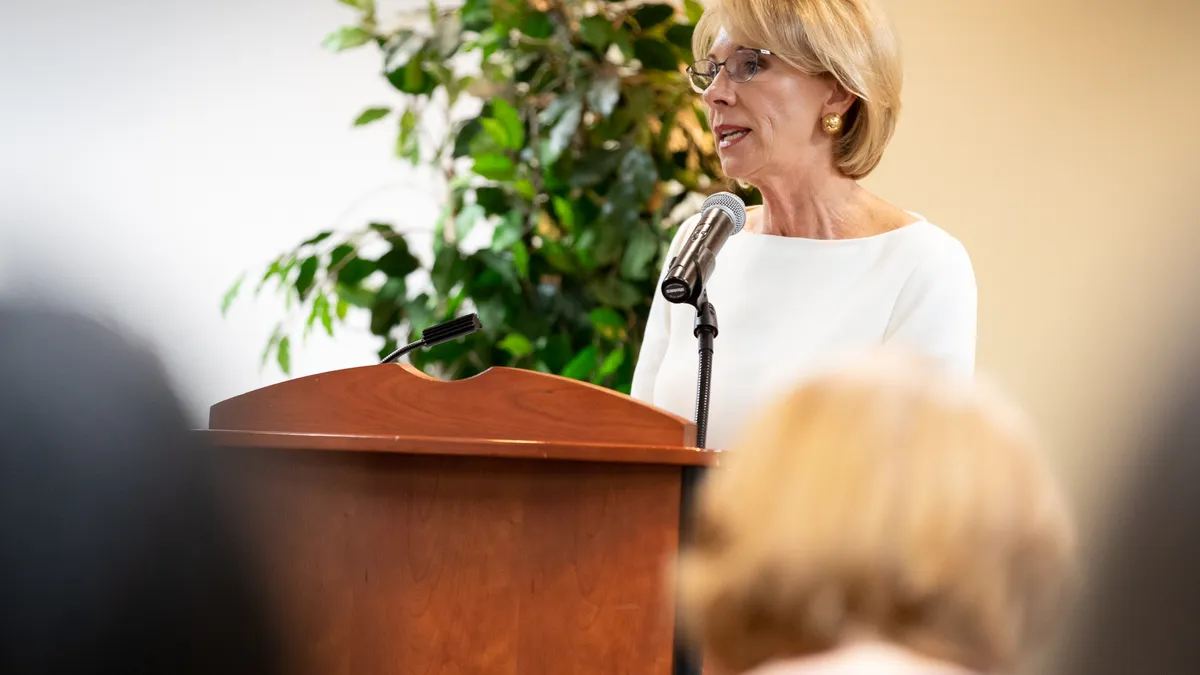Dive Brief:
- The U.S. Education Department is releasing a draft proposal for new rules to guide the higher ed accreditation process, Bloomberg Government reported.
- The proposed rules loosen oversight for accreditors and religious institutions, and they give colleges more flexibility to define their own programs — particularly concerning online and competency-based education (CBE), the credit hour and correspondence courses, Inside Higher Ed reported.
- It will be addressed in a negotiated rulemaking session on accreditors slated to run from Jan. 14 through March.
Dive Insight:
In a meeting with higher ed industry leaders last month, Education Secretary Betsy DeVos hinted at her department's priorities for the upcoming rulemaking session. Among them were clarifying responsibilities for accreditors and state and federal regulators, as well as determining which existing rules affecting accreditors are "ambiguous, repetitious, or unnecessarily burdensome."
With its latest proposal, the Ed Department is seeking to pull back oversight requirements the Obama administration placed on accreditors that aimed to ensure colleges, particularly for-profits, were delivering on promised student outcomes.
However, many accreditors and colleges said those rules were too stringent, and have since asked for more freedom to pursue new educational models such as CBE — through which a student progresses through coursework based on mastery and not time — as well as for more differentiation in accreditation standards based the type of institution overseen.
Redefining the credit hour is one way the proposed rules seek to increase flexibility. The Obama administration had issued specific criteria for the credit hour as a means to help reduce inflation and improve student outcomes. The proposed rules eliminate the Obama-era definition altogether and let colleges decide how to measure student progress.
The rulemaking session comes as more colleges are offering programs online and taking nontraditional approaches to student evaluation, often as a way to respond to demand in their state or region's workforce.
Several for-profit and nonprofit colleges are implementing CBE as well as other immersive learning experiences. Additionally, law and business graduate programs are increasingly finding a place in part or fully online, requiring new ways of replicating and assessing interactions in traditionally face-to-face programs.
A report this fall from Deloitte's Center for Higher Education Excellence and Georgia Tech's Center for 21st Century Universities explores colleges are using these educational models. It contends they will become a necessary feature of postsecondary education going forward.













